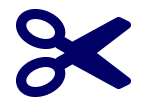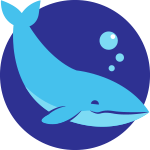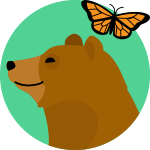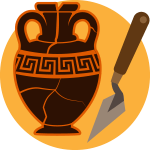ROBERT VOSS: Poisons are chemicals and they're chemical that damage biological systems. That damage plants and animals by interfering with the way they normally work.
ROBERT VOSS: I suppose poisons can be found anywhere. I mean, there are naturally produced poisons. And people tend to think of poisons as environmental threats or things that are released by pollution or something like that, but nature is full of poisons. Poisons are used by plants and animals to defend themselves. They're used by some animals to kill their prey. So they have a wide-- you know, nature has come up with lots of poisons, and they're used in different ways.
ROBERT VOSS: Oh, I love poisonous snakes. We call them venomous snakes because we-- poison-- venoms are a special kind of poison, they're injected poisons.
And when I was a little kid, I loved poisonous snakes. I loved Rikki-Tikki-Tavy, the story of the mongoose that fought the cobra. I was always on the cobra's side though.
And when I was a teenager, I caught rattlesnakes and stuff like that. So I have a soft spot for poison-- venomous snakes.
ROBERT VOSS: You know, rattlesnake venom is like a toolbox, with like 30 different screwdrivers and wrenches in it. And each one of those has a function. And we can find out what those functions are, and we can use them. We can then turn them around and we can use them to learn things about really complicated processes in our body, like blood clotting and breathing and that sort of thing.
And we can use them-- in many cases, we can use poisons as drugs. So you know, it may be that one man's-- you know, there's a saying that one man's meat is another man's poison? Well, one man's poison can be another person's cure.
ROBERT VOSS: There's a great-- there's a great diorama that shows a whole troupe of mandrels, these big colorful monkeys, they're forest baboons, moving through the Congo forest. And the adults in the background and they're not paying much attention to the young mandrel. So there's a young mandrel who should know better but doesn't, and he's getting really close to a big gaboon viper and, he's about to become viper dinner. And it's a frozen piece. It's a frozen scene and kids could sit in front of that and wonder what's going to happen next, and some of the outcomes are not so good.
ROBERT VOSS: There's lots of ways where you can take a love of nature and a love of biology and that sort of thing and lead to useful life, but if you're going to be a scientist, you got to do well in school.
ROBERT VOSS: My favorite ice cream is mint chocolate chip.






 Biodiversity
Biodiversity
 Brain
Brain
 Genetics
Genetics
 Marine BiOLogy
Marine BiOLogy
 MicrobiOLogy
MicrobiOLogy
 PaleontOLogy
PaleontOLogy
 ZoOLogy
ZoOLogy
 AnthropOLogy
AnthropOLogy
 ArchaeOLogy
ArchaeOLogy
 Astronomy
Astronomy
 Climate Change
Climate Change
 Earth
Earth
 Physics
Physics
 Water
Water
